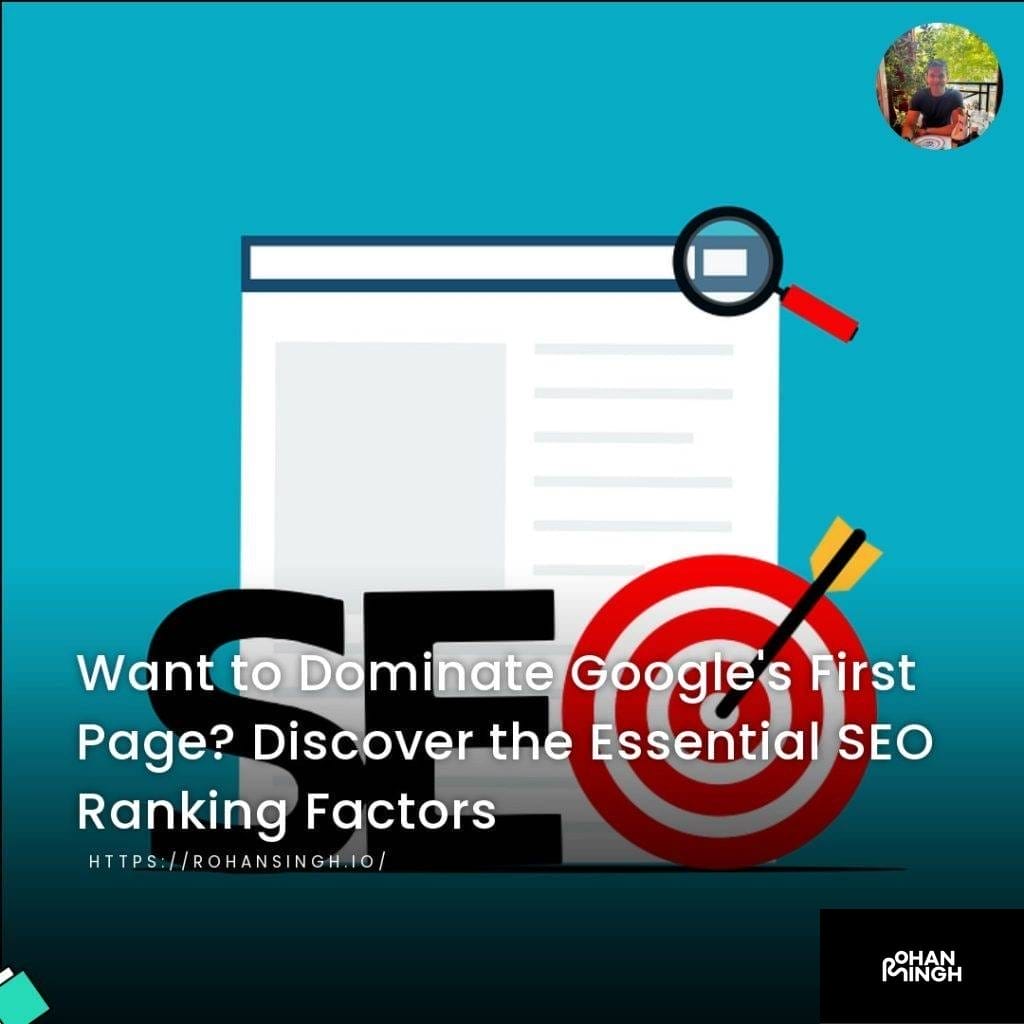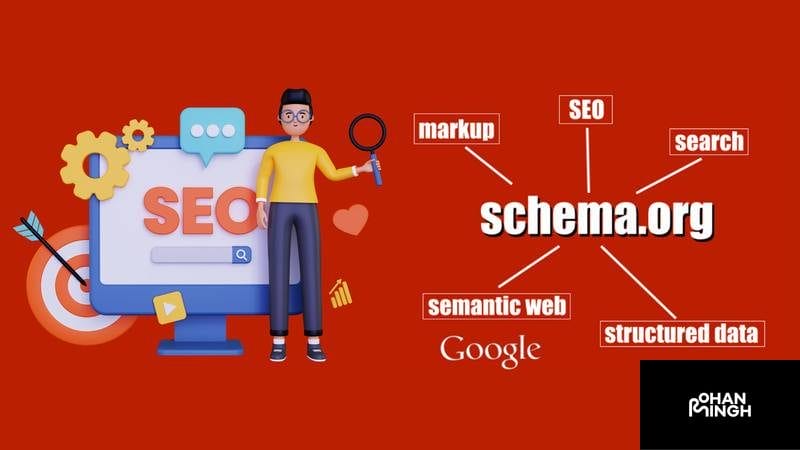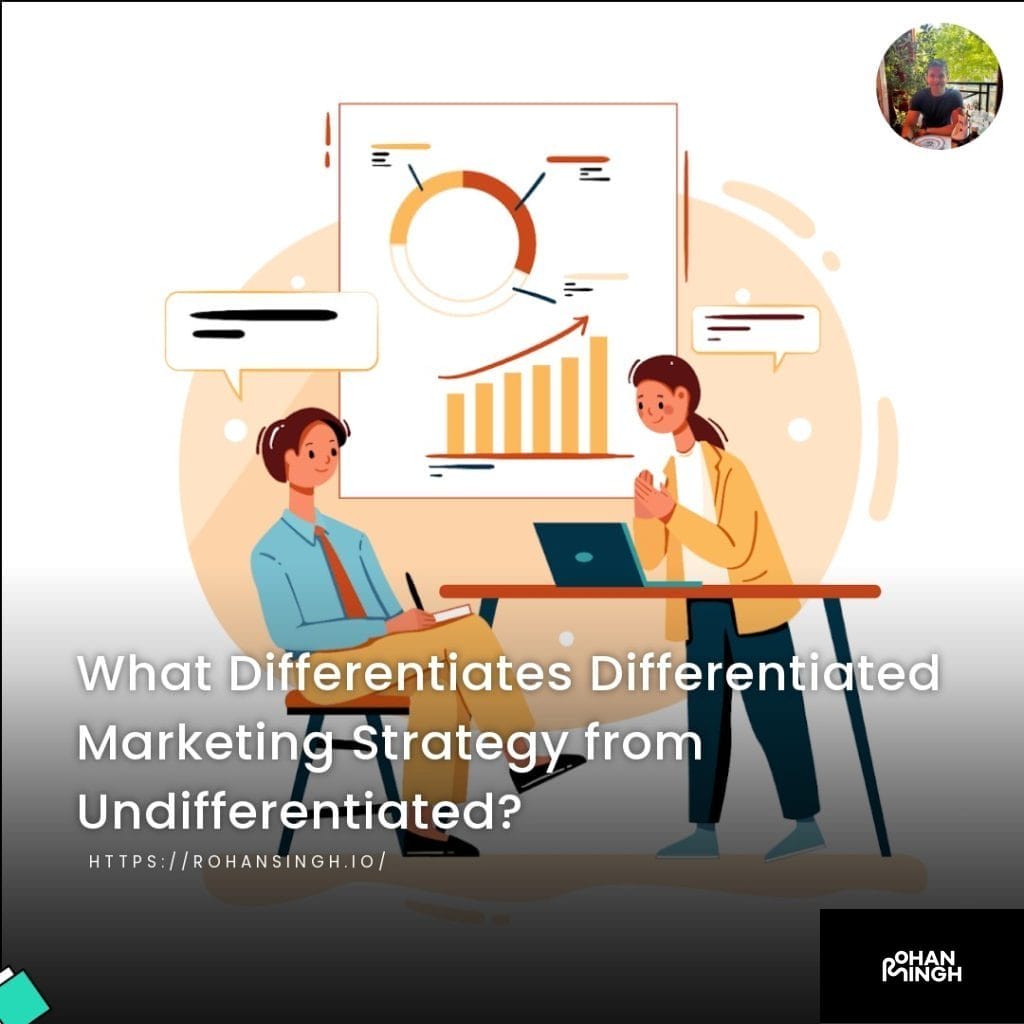Want to Dominate Google’s First Page? Discover the Essential SEO Ranking Factors

What is Google Ranking?
Google Ranking is the process by which search engines determine the order in which websites appear in the search results for a specific keyword or query. It plays a crucial role in driving organic traffic to websites and is often considered a key metric for online success. Google, being the most widely used search engine, has its own complex algorithm that considers numerous factors to determine the ranking of a website. By understanding and optimizing these Google ranking factors, website owners can increase their chances of appearing on the first page of search results, ultimately boosting their visibility and online presence. In this article, we will explore some of the essential Google ranking factors and provide insights on how to improve website rankings.
Table of Contents
ToggleBenefits of Ranking on Google’s First Page
As an AI Marketing Expert, it is essential to understand the benefits of ranking on Google’s first page. Achieving a high ranking on the search engine results page (SERP) can have a significant impact on a website’s visibility and success.
1. Higher Visibility: Ranking on the first page of Google ensures that your website is prominently displayed to users searching for relevant keywords. With millions of daily searches, this increased visibility significantly boosts your brand’s online presence.
2. Increased Organic Traffic: The first page of Google receives the majority of clicks, with the top three positions accounting for the majority of organic traffic. By ranking on this coveted page, you can drive more qualified visitors to your website, resulting in increased leads, sales, and conversions.
3. Better Brand Credibility: People trust Google’s search results. Being on the first page instills confidence in your brand, signaling that your website offers valuable and relevant information or products. This builds credibility and establishes your business as an industry authority.
4. Higher Click-Through Rate: Websites listed on the first page of search results generally experience higher click-through rates (CTRs). Users perceive top-ranking websites as more reliable and reputable, making them more likely to click through and explore your content or offerings.
5. More Opportunities for Conversions: Increased visibility, organic traffic, and higher CTRs result in more potential customers visiting your website. With a well-optimized site and compelling call-to-actions, you can significantly increase conversion rates, whether that means making a purchase, signing up for a newsletter, or filling out a contact form.
Ranking on Google’s first page holds numerous benefits such as higher visibility, increased organic traffic, better brand credibility, higher click-through rates, and more opportunities for conversions. By utilizing effective SEO strategies and ranking factors, you can elevate your website’s online presence and achieve greater success in the digital landscape.
Let's talk about your future project!
Eager to collaborate on your upcoming endeavor? Let's explore and ignite the potential of your next big idea, shaping a promising future together!
Core Ranking Factors
When it comes to ranking on the first page of Google, understanding the core ranking factors is crucial. These factors directly influence your website’s visibility and performance in search engine results. By optimizing your website based on these core ranking factors, you can improve your chances of ranking higher and driving more organic traffic. In this article, we will explore some of the key factors that Google considers when determining search rankings and provide insights on how to effectively optimize your website for better visibility and success. So let’s dive into the world of core ranking factors and discover how to make your website stand out in the digital landscape.

Keywords and Keyword Research
In the world of search engine optimization (SEO), keywords play a crucial role in determining the success of a website’s visibility on search engines like Google. Understanding the importance of keywords and conducting effective keyword research is essential for any website owner or digital marketer looking to rank their website on Google’s first page.
Keyword research is the process of identifying the search terms and phrases that users commonly use when searching for information or products online. This research helps website owners to optimize their content and target specific keywords that have high search volume and low competition.
To find high-volume and low-competition keywords, several factors need to be considered. Firstly, analyzing search queries of the target audience allows us to understand the phrases they use to search for desired information. By identifying these search queries, we can then use them as a basis for finding relevant keywords.
Relevant keywords are those that accurately reflect the content and offerings of the website. These keywords should align with the search intent of users, ensuring that the website appears in search results when users are looking for specific information or products.
Target keywords are the focus keywords that website owners want their website to rank for in search engine results pages (SERPs). These keywords should be carefully selected based on their relevance to the website’s content and the popularity of the search term.
Analyzing search rankings for target keywords helps identify the competition for those keywords. High-ranking keywords typically have more competition, making it harder for a website to rank for those terms. On the other hand, low-ranking keywords may offer an opportunity to achieve higher visibility with less effort.
Conducting comprehensive keyword research allows website owners to optimize their content and improve their website’s rankings on Google. By identifying high-volume and low-competition keywords that align with user search intent, website owners can tailor their content to match what users are looking for, ultimately driving more organic traffic to their website. So, don’t underestimate the power of keywords and start incorporating this essential SEO practice into your digital marketing strategy today.
High-Quality Content Writing
High-quality content writing is paramount when it comes to improving Google ranking factors. According to recent studies, over 60% of marketers agree that creating high-quality content is the most effective SEO strategy. Search engines like Google prioritize well-written, informative, and engaging content that meets user needs and provides value.
To create valuable and engaging content, it is crucial to incorporate relevant keywords throughout the content. These keywords should reflect the search terms used by your target audience. You can use various tools and applications, such as Google Keyword Planner or SEMrush, to identify relevant keywords with high search volume and low competition.
Additionally, it is essential to understand and address user intent when crafting content. This means creating content that aligns with what users are looking for and provides the information they need. By doing so, you improve the chances of your content appearing higher in search engine results pages.
Regularly updating and refreshing your content is also vital for Google ranking. Fresh and up-to-date content signals to search engines that your website is active and relevant. Consider adding new information, including recent data and statistics, to keep your content current and valuable.
High-quality content writing is an integral part of Google ranking factors. By using relevant keywords, addressing user intent, and ensuring content freshness, you can boost your website’s visibility and attract more organic traffic.
Domain Authority (DA) & Page Authority (PA)
Domain Authority (DA) and Page Authority (PA) are essential metrics developed by Moz to predict a website’s performance in search engine rankings. These metrics play a crucial role in determining the credibility and authority of a website.
Domain Authority reflects the overall strength and credibility of a domain, while Page Authority measures the potential ranking ability of an individual webpage. Both metrics are scored on a scale of 1-100, with higher scores indicating a stronger online presence.
To achieve higher DA and PA scores, it is important to focus on several key factors. One significant factor is the quality and quantity of inbound links pointing to your website or webpage. Inbound links from high-authority and relevant websites are considered strong signals of credibility and can significantly improve your DA and PA scores.
Other factors that contribute to higher DA and PA scores include the overall website’s user experience, the relevance and quality of the website’s content, social signals such as shares and engagement, and the website’s overall performance in search engine rankings.
By understanding and optimizing these factors, website owners and search engine optimization (SEO) professionals can work towards improving their domain’s overall authority and their individual pages’ ranking potential. Moz’s DA and PA metrics provide valuable insights into a website’s performance and serve as useful benchmarks for ongoing optimization efforts.

Mobile-Friendliness and Responsive Design
Mobile-friendliness and responsive design are crucial factors in improving Google rankings. In today’s digital landscape, mobile devices have become the primary means of accessing the internet. According to recent statistics, mobile devices account for more than 60% of internet searches.
Having a responsive website ensures that it adapts to different screen sizes and provides an optimal viewing experience across all devices. This is important because Google prioritizes mobile-friendly websites in its search rankings. In fact, Google announced that mobile-friendliness is now a ranking factor in mobile search results.
A responsive website enhances user experience by automatically adjusting its layout and content to fit the device being used. It makes navigation easier, as users can easily read and interact with the website without having to zoom or scroll unnecessarily. This leads to lower bounce rates and higher user engagement, both of which are positive signals for search engine rankings.
To improve Google rankings, it is imperative to optimize the website’s design and content for mobile devices. This includes using mobile-friendly designs, optimizing page load speed, and ensuring that all elements of the website are easily accessible on mobile screens. Tools and applications such as Google’s Mobile-Friendly Test and Page Speed Insights can provide valuable insights and recommendations to enhance mobile-friendliness and improve Google rankings.
Mobile-friendliness and responsive design play a vital role in boosting Google rankings. By prioritizing mobile optimization and providing an excellent user experience across all devices, websites can improve their visibility in mobile search results and attract a larger audience.
Internal Linking Structure & Outbound Links to Relevant Sites
Google Ranking Factors play a crucial role in determining a website’s position in search engine rankings. Two important factors that can greatly impact website ranking are internal linking structure and outbound links to relevant sites.
Internal linking structure refers to how the various pages and content within a website are interconnected. It is important because it helps search engines understand the hierarchy and relationship between different pages, which in turn improves website ranking. To optimize internal linking structure, it is recommended to use descriptive anchor text that includes relevant keywords. Additionally, creating a clear and logical navigation structure with a sitemap can further enhance website ranking.
Outbound links, on the other hand, are links that direct users from a website to external, relevant sites. These links not only provide additional information and resources for users but also signal to search engines that the website is a trusted source of information. By linking to reputable and authoritative sites, website owners can build credibility and improve search engine rankings.
To optimize outbound links, it is important to choose relevant sites that are reputable and have high domain authority. It is also advisable to use descriptive anchor text that includes relevant keywords. However, it is important to strike a balance and avoid excessive linking, as this can be seen as spammy and negatively impact website ranking.
Optimizing internal linking structure and including relevant outbound links are vital for improving website ranking. By following best practices and using tools like Google Analytics to evaluate website performance, website owners can enhance their search engine rankings and drive more organic traffic.
Image Optimization & Alt Text Tags
Image optimization plays a crucial role in improving Google rankings and overall website performance. By optimizing images, website owners can enhance their visibility in image search results and provide a better user experience.
When it comes to image optimization, one important factor to consider is the use of alt text tags. Alt text tags are descriptions that are added to HTML code, providing context for the images. This is beneficial for both search engines and visually impaired users who rely on screen readers to navigate the web.
By including descriptive alt text tags, search engines can better understand the content of the images and associate them with relevant keywords. This can help improve the website’s visibility in search engine results pages (SERPs), especially in image search. In fact, a study by Jumpshot found that images appear in around one-third of the top 20 most frequently clicked SERP results.
Moreover, optimizing images can boost website performance. Large and unoptimized images can significantly slow down webpage loading speed, negatively impacting user experience. According to Google, 53% of mobile users abandon a webpage that takes more than three seconds to load. Properly optimized images reduce file sizes without sacrificing quality, resulting in faster loading times and a better user experience.
Image optimization, including the use of descriptive alt text tags, is essential for improving Google rankings, increasing visibility in image search, enhancing website performance, and providing a better user experience. Incorporating image optimization tools or applications can assist in streamlining the optimization process and maximizing the benefits.

Structured Data Markup (Schema.org) & Rich Snippets
Structured Data Markup, also known as Schema.org, is a powerful tool that allows website owners to provide search engines with structured information about their web pages. This additional information helps search engines understand the content on the pages and display relevant information in search results.
Implementing structured data markup on your website can have a significant impact on your search visibility. By providing search engines with structured information about your content, you enable them to display rich snippets in search results. Rich snippets are additional pieces of information that appear alongside the regular search results, providing users with more context about the content of a web page.
There are various types of structured data markup that can be used to enhance search visibility and attract more organic traffic. For example, the “Product” markup can provide detailed information about a product, including its price, availability, and reviews. The “Recipe” markup can provide detailed information about a recipe, such as ingredients, preparation time, and nutritional information.
By implementing structured data markup and utilizing rich snippets, website owners can increase their chances of attracting more organic traffic. Rich snippets not only make search results more visually appealing, but they also provide users with more relevant information upfront, making them more likely to click on your website.
Tools and applications like Google’s Structured Data Markup Helper can assist website owners in implementing structured data markup efficiently. By utilizing structured data markup and rich snippets, website owners can improve their search visibility, attract more organic traffic, and ultimately enhance the overall user experience. Don’t forget to always keep Google Ranking Factors in mind when optimizing your website.
URL Structure & Permalink Optimization
URL structure and permalink optimization are crucial factors for improving your website’s SEO and ultimately ranking higher on Google.
Having a well-structured URL provides search engines with valuable information about the content of your page. It allows them to understand the topic and relevance of your webpage, which in turn improves your chances of ranking well in search results.
To optimize your permalinks for better SEO, it’s important to include relevant keywords in the URL. This helps search engines and users alike to understand what the page is about. For instance, if you have a webpage about “Google Ranking Factors”, your URL could be something like “yourwebsite.com/google-ranking-factors”.
In addition to including relevant keywords, it’s advisable to use hyphens to separate words in your URL. Hyphens make it easier for both search engines and users to read and understand the URL structure. For example, “yourwebsite.com/seo-tips” is more readable than “yourwebsite.com/seotips”.
To customize your permalinks, you can make use of various tools and plugins available. Applications like Yoast SEO, Rank Math, or All in One SEO are popular options that allow you to easily customize your URL structure.
By optimizing your URL structure and permalinks, you can significantly improve your website’s SEO and increase your chances of ranking higher on Google. So make sure to pay attention to this often-overlooked aspect of SEO for better visibility and organic traffic.
Page Speed - Core Web Vitals & User Experience
Page speed, core web vitals, and user experience are crucial factors that heavily impact SEO rankings. According to recent statistics, a one-second delay in page load time can result in a 7% decrease in conversions. Slow loading websites not only frustrate users but also hinder search engine crawling and indexing.
Google’s core web vitals measure three important aspects of user experience: loading, interactivity, and visual stability. These vitals include metrics such as Largest Contentful Paint (LCP), First Input Delay (FID), and Cumulative Layout Shift (CLS). Websites that prioritize improving these core web vitals tend to offer a faster, more interactive, and visually stable user experience.
Optimizing these factors can significantly improve website performance and increase rankings on Google. Faster loading times not only enhance user satisfaction but also reduce bounce rates. Tools like Google PageSpeed Insights or GTmetrix can help identify areas for improvement and provide suggestions to optimize page speed. Additionally, optimizing images, reducing server response time, and utilizing caching techniques can further boost loading speeds.
Investing in user experience factors such as intuitive navigation, mobile-friendliness, and engaging content can lead to longer dwell times and lower bounce rates. These positive user signals send a strong message to search engines about the value and relevance of your website.
By focusing on page speed, core web vitals, and user experience, you can ensure your website performs at its best, leading to improved search rankings, increased organic traffic, and higher conversions. So, don’t overlook these essential Google ranking factors when optimizing your website for success.

HTML Headings, Title Tag Optimization, Meta Descriptions, Canonical Tags
HTML headings, title tag optimization, meta descriptions, and canonical tags play a crucial role in improving website rankings on Google. Let’s delve into each of these elements and understand their significance.
HTML headings provide structure and hierarchy to your content. By using headings (H1-H6 tags) effectively, you can make it easier for search engines to understand and index your content. This, in turn, enhances the readability and user experience of your website.
Title tag optimization involves optimizing the title tag of each webpage with relevant keywords. It is essential to craft compelling and keyword-rich title tags as they appear as clickable headlines in search engine results. A well-optimized title tag not only helps search engines understand the topic of your page but also entices users to click and visit your website.
Meta descriptions are brief summaries that appear below the title tag in search results. Optimizing meta descriptions with relevant keywords and compelling descriptions helps improve click-through rates and overall user experience. Including relevant keywords in meta descriptions also signals the topic relevance to search engines, aiding in better rankings.
Canonical tags are used to address the issue of duplicate content. Duplicate content can harm your website’s rankings. With canonical tags, you can specify the preferred version of a webpage to search engines. This helps eliminate confusion and ensures that the correct version of your content is indexed, preventing any negative impact on your website rankings.
By optimizing HTML headings, title tags, meta descriptions, and implementing canonical tags, you can effectively enhance your website’s visibility and rankings on Google. Using tools and applications like Yoast SEO or SEOptimer can assist in optimizing these elements for better search engine performance. So don’t underestimate the power of these factors in boosting your website rankings on Google.
Advanced SEO Factors for Better Rankings
In the world of digital marketing, ranking your website on the first page of Google is crucial for driving organic traffic and increasing visibility. To achieve this, it’s essential to understand and implement advanced SEO factors that can improve your website’s rankings. In this article, we will explore some of these advanced SEO factors and methods to enhance your website’s performance and ultimately gain better rankings on Google.
1. Core Web Vitals:
Core Web Vitals have gained significance in recent years as Google’s algorithm now considers user experience as a key ranking factor. These metrics measure factors such as page loading speed, interactivity, and visual stability. Tools like Google Search Console and PageSpeed Insights can help you analyze your website’s Core Web Vitals and provide recommendations for improvement to boost your rankings.
2. Content Quality:
Creating high-quality, valuable content is crucial for better rankings. Google prioritizes content that meets user search intent, provides relevant information, and is well-structured. Ensure your content is original, well-written, and incorporates relevant keywords naturally. Tools like SEMrush and Moz can assist you in optimizing your content for better SEO performance.
3. Mobile-Friendly Design:
With mobile-first indexing, Google now prioritizes websites that offer a seamless mobile experience. Make sure your website is fully optimized for mobile devices, with responsive design, fast loading speeds, and easy navigation. Tools like Google’s Mobile-Friendly Test can help you identify and fix any issues that may detract from a positive mobile user experience.
4. Backlinks:
High-quality inbound links from reputable websites signal to Google that your content is valuable. Focus on building a diverse backlink profile from authoritative sources within your industry. Tools like Ahrefs and Majestic can assist you in identifying potential backlink opportunities and monitoring your link-building efforts.
By implementing these advanced SEO factors and leveraging the right tools, you can improve your website’s rankings on Google and drive more organic traffic to your site. Remember, SEO is an ongoing process, so stay up to date with the latest trends and algorithm changes to stay ahead of the competition.
Domain Age, History & Popularity
Domain age, history, and popularity are significant factors that contribute to the ranking of a website on Google. These factors play a crucial role in establishing trust, authority, and credibility, ultimately influencing a website’s visibility in search engine results.
Domain age refers to the length of time a website has been registered and active. Websites with a longer history tend to have an advantage in terms of trust and authority. This is because search engines like Google perceive older domains as more established and reliable sources of information. While domain age alone is not a guarantee of higher rankings, it can positively impact a website’s overall reputation.
Domain history is another aspect that affects rankings. Any past penalties or spammy activities associated with a domain can harm its credibility and visibility in search results. Search engines take into account a website’s past behavior to assess its trustworthiness. Websites that have been penalized in the past may receive lower rankings or even be excluded from search engine results.
To improve domain popularity, it is crucial to focus on building high-quality backlinks from reputable and authoritative sources. Backlinks serve as a vote of confidence and indicate that other websites find your content valuable and worth linking to. Additionally, establishing a strong online presence through social media, content marketing, and active engagement with your target audience can also enhance your domain’s popularity and overall ranking.
Domain age, history, and popularity are important Google ranking factors. By focusing on these aspects and implementing strategies to improve them, website owners can enhance their chances of achieving higher visibility and better rankings in search engine results.

Conclusion
In conclusion, understanding and implementing Google ranking factors are crucial for improving website rankings. The key factors discussed in this article include domain age, domain history, and building high-quality backlinks.
Domain age plays a role in establishing trust and authority with search engines. Older domains are perceived as more reliable sources of information. However, domain age alone is not a guarantee of higher rankings.
Domain history is also important as past penalties or spammy activities can harm a website’s credibility. Search engines assess a website’s trustworthiness based on its past behavior.
To improve domain popularity, it is essential to focus on building high-quality backlinks from reputable and authoritative sources. Backlinks act as a vote of confidence and indicate that other websites find your content valuable.
Implementing these factors can enhance a website’s reputation and visibility in search results. By understanding and incorporating Google ranking factors, website owners can increase their chances of ranking higher and attracting organic traffic. Using tools or applications like Google Analytics can provide valuable insights into website performance and help optimize strategies accordingly.
Overall, a comprehensive understanding and application of Google ranking factors are essential for website owners looking to improve their search engine rankings and drive more organic traffic.
FAQs
What are Google ranking factors?
Google ranking factors are criteria or signals utilized by search engines, particularly Google, to assess and rank websites in search engine results pages (SERPs). These factors determine the relevance, reliability, and authority of a website, ultimately impacting its visibility and organic traffic.
What is the role of keyword research in Google ranking?
Keyword research is crucial in optimizing a website for search engine rankings. Understanding the search terms and phrases used by the target audience helps in creating relevant content that addresses their needs and aligns with their search intent. By incorporating these keywords strategically in the website’s content, meta tags, headlines, and URLs, it increases the chances of ranking higher for those particular search queries.
How does high-quality content influence Google's rankings?
High-quality content not only satisfies the user’s search intent but also contributes to better search engine rankings. Google values informative, relevant, and well-structured content that provides value to the readers. By incorporating the target keywords naturally, including relevant and helpful information, and formatting the content for better readability, it improves the overall user experience and enhances the chances of ranking higher.
What is the significance of domain authority in Google rankings?
Domain authority refers to the credibility and reputation of a website, indicating how trustworthy it is as a source of information. Websites with higher domain authority are more likely to rank higher in search engine results. Building domain authority involves obtaining high-quality backlinks from reputable websites, consistently producing valuable content, and establishing a strong online presence.
Similar articles about Acquisition Strategy:
Ready to Plan Your Dream Trip with ChatGPT Vacation Planner?, Want to Experience the Magic of Third-Party ChatGPT Plugins?, How can Efficient Project Management Boost Your Success?, Looking to Boost Your YouTube Views? Use ChatGPT for Top-Notch Video Optimization!
Are You Leveraging SEO Audits to Win More Clients?, Ever Thought of Starting an AI Career? Discover How Today!, Can SEO Propel Your Store to 1 Million Monthly Visitors?, How Can Google Bard Supercharge Your SEO Content Strategy?
Eager to Multiply Local Business Reviews from Travelers?, Which is the Best AI Chatbot? A Head-to-Head Comparison of ChatGPT, Claude 2, Bing Chat, and Google Bard, Want a Game-Changer in SEO? Have You Tried AI and Chrome Extensions Yet?,
Can AI-Powered Growth Spark Your Business Acceleration and Digital Transformation?, Ready to Achieve SEO Mastery and Stand Out in the Digital World?, Ready to Dominate the Future? How Can You Kickstart Your AI Data Science Career Today?, Want to Dominate Google SERP? Learn How to Supercharge Your Content Strategy!, Have You Explored the ChatGPT Android App Yet?
Ready to Supercharge Your Business? Harness the Power of Always-On PPC Strategy Now!, Are You Choosing the Right Digital Agency for Your Business? Discover the 5 Key Considerations!, How Can AI Marketing Tools Transform Your Social Media Career?, How Can You Dominate YouTube Rankings with SEO in 2023?
Struggling with Competitive Organic Keywords? Try Our Advanced Keyword Domination Strategy!, Want to Dominate Google Page Ranking? Discover the Secrets Here!, Can You Transform Unexpected Publicity into Opportunity with PPC?, Want to Create High-Converting Emails Fast? Have You Tried AI Copywriting & ChatGPT?
How Can You Thrive in the AI Era? A Guide to AI Survival, Want to Dominate Google's First Page? Discover the Essential SEO Ranking Factors, How to Implement Generative AI Tools Safely and Ethically? Navigating the Ethical AI Implementation Quandary, Ready to Scale Your Career? How to Learn Growth Marketing in 6 Transformative Steps
Ready to Launch Your Career? How to Land Your First Digital Marketing Job: A Must-Read Guide for Freshers!, Want to Safeguard Your Paid Search Campaigns? Discover Proven Strategies Here!, Looking to Boost Your WordPress SEO with AI? Here are 12 Tools You Can’t Miss!, Want to Boost Your Google Rankings? Master SEO Strategies to Hit #1 Now!
How Can AI SEO Revolutionize Your Online Strategy?, Are Your High Schoolers Ready for the AI Wave?
What Marketing Strategy Did Cheetos Employ for Plants vs. Zombies Collaboration?
Rohan Singh | May 1, 2024 | Acquisition What Marketing Strategy Did Cheetos Employ for Plants vs. Zombies Collaboration? Background on Cheetos Cheetos, a popular brand of cheese-flavored snacks, has made a name for itself with its bold and playful marketing strategies. Known for its irreverent and creative campaigns, Cheetos has consistently found unique ways […]
What Marketing Strategy Did Cheetos Employ for Plants vs. Zombies Collaboration?
Rohan Singh | May 1, 2024 | Acquisition What Marketing Strategy Did Cheetos Employ for Plants vs. Zombies Collaboration? Background on Cheetos Cheetos, a popular brand of cheese-flavored snacks, has made a name for itself with its bold and playful marketing strategies. Known for its irreverent and creative campaigns, Cheetos has consistently found unique ways […]
What Differentiates Differentiated Marketing Strategy from Undifferentiated?
Rohan Singh | April 30, 2024 | Acquisition What Differentiates Differentiated Marketing Strategy from Undifferentiated? Definition of Differentiated Marketing Strategy A differentiated marketing strategy is a targeted approach that focuses on creating unique products or services to meet the specific needs and preferences of different customer segments. It recognizes that customers have diverse tastes, preferences, […]
What Sets Apart the Marketing Concept from a Marketing Strategy?
Rohan Singh | April 29, 2024 | Acquisition What Sets Apart the Marketing Concept from a Marketing Strategy? Definition of Marketing Concept The marketing concept is a philosophy that places the customer at the center of all marketing activities. It focuses on understanding the needs and wants of the target market and delivering value to […]
Which promotional mix strategy targets market channel members?
Rohan Singh | April 28, 2024 | Acquisition Which promotional mix strategy targets market channel members? When it comes to promoting a product or service, companies utilize various strategies to reach their target audiences. One key strategy that directs marketing efforts toward market channel members is known as trade promotion. Trade promotion is a type […]
Should charter schools adopt regional or national marketing strategies?
Rohan Singh | April 27, 2024 | Acquisition Should charter schools adopt regional or national marketing strategies? Purpose When it comes to marketing strategy in the field of charter schools, two broad approaches can be taken: regional and national. Each approach has its purpose and benefits depending on the goals and aspirations of the charter […]
Share :






